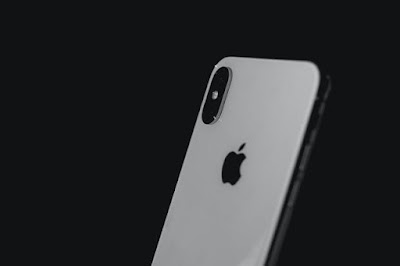Although iPhones are the most secure smartphones on the market today, you shouldn’t fall prey to the misconception that they’re impervious to cyber-attacks and other threats. Any device that can connect to the internet can theoretically be hacked into and all devices are vulnerable to physical theft. Fortunately, there are always additional security measures that you can employ to protect your device and the data inside of it. If you own an iPhone, you must educate yourself on the different risks iPhone users face and learn how to protect it.
What Security Threats do iPhone Users Face?
Most hackers appreciate a challenge, especially when it
leads to a great reward. For these reasons, iPhones are a major target. Not
only is iOS already the most secure operating system to date, but the people
who own iPhones tend to be more affluent and use the phones for purposes like
business and making financial transactions.
The number-one cyber threat that iPhone users face is phishing. Hackers may impersonate
someone you know or someone you would trust from a reputable company. They may
lure you in through email links or links in private messages that lead to a
site where malware gets into the phone and infects it, or where you would share
confidential information like passwords or account numbers. Phishing can also
be done through fake apps.
Another threat for iPhone users is the physical theft of the
device. In such cases, thieves may go after the data in the phone or sell the
phone itself. iPhones are major targets for thieves because the value of the
phones, and usually the data inside of them, is higher than that of most other
smartphones on the market.
3 Simple Ways to Protect Your iPhone
There are a few simple steps you can take to ensure your
iPhone is secure.
Use a VPN to Browse the Web
Downloading a VPN and using it to connect to the internet
keeps your data encrypted and your IP address masked. If you connect to public
Wi-Fi hotspots or make regular financial transactions over the internet, using
a VPN and a private or incognito browser is a good way to make sure your data
is protected. Signing up for a
VPN free trial is a great way for you to get familiar
with the tool and see how it works before committing.
Set a Secure Password and Enable 2FA
Setting a custom alphanumeric password and enabling
two-factor authentication is a recipe that will ensure that no one can get
access to your data. A custom alphanumeric password is impossible to guess, and
2FA means that a secret password created in real-time and sent to another
device of your choosing will have to be entered every time your password is.
Utilize Your iPhone’s Built-In Security Settings
Get familiar with the array of built-in security settings that the
iPhone offers and set them to your personal preference. There are several
settings designed to keep your iPhone even more secure if you have them enabled
and set properly.
Follow the top three security tips above to keep your iPhone
and data safe in 2021.
Writer’s bio:
Matthew Stern is a technology content strategist at TechFools, a tech blog aiming at informing readers about the potential dangers of technology and introducing them to the best ways to protect themselves online.
As a tech enthusiast and an advocate for digital freedom, Matthew is dedicated to introducing his readers to the latest technology trends and teaching them how to gain control over their digital lives.










